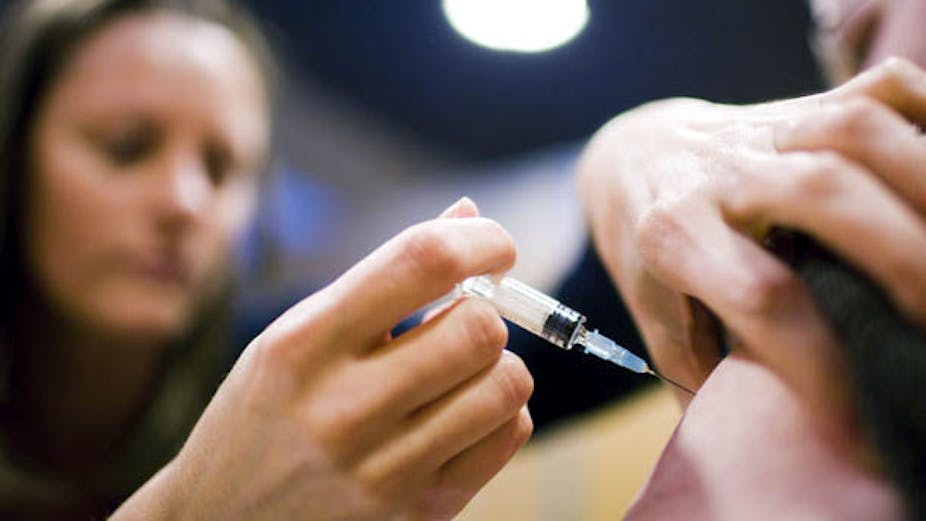The Australian Vaccination Network (AVN) today won its Supreme Court appeal against the Health Care Complaints Commission (HCCC), which had ordered the anti-vaccination network to warn that its website “should not be read as medical advice”.
The AVN wanted to achieve two things in this case. Firstly, to have the HCCC public warning against it thrown out. Which it was.
Secondly – and more importantly for the network – it wanted the Supreme Court to grant a certiorari, formally declaring that the HCCC’s decision was wrong. With this, the the Office of Liquor Gaming and Racing could reverse its 2010 decision to revoke the AVN’s charity licence.
While the HCCC warning may have damaged the AVN’s reputation by labelling it a public risk to health and safety, losing its charity licence and thus its ability to publicly fundraise was certainly hurting the network more. And without a certiorari, which was not granted, the argument for reinstatement would not be strong.
The AVN’s action against the HCCC stems from two upheld complaints made in 2009 accusing the AVN of spreading misinformation about the safety and efficacy of vaccines. In July 2010, following a 12-month investigation, the HCCC issued a public health warning stating the AVN’s website contained information that was “solely anti-vaccination, ..incorrect and misleading, and quotes selectively from research to suggest that vaccination may be dangerous.”
The AVN fought these findings from several fronts.
As media spokesperson for the AVN, Meryl Dorey asserted the AVN did not fall under the jurisdiction of the HCCC since neither she, nor the AVN, were health-care providers. But in a change of heart, early in the trial, she admitted they could be characterised this way. The Judge agreed, stating the “plaintiff is a health service provider since it provides health education services”.
Since Dorey was unable to claim “I’m not a health-care provider”, her legal team focused on a technicality in Section 7 of the Health Care Complaints Act 1993, which describes who can complain about health care providers and what they can complain about. This really comes down to semantics and has little relevance to the reasons for the complaints being made in the first place.
Essentially, a complaint must demonstrate that the service “affects the clinical management or care of an individual client”. You can see how this might apply if you were to visit an iridologist who accidentally poked you in the eye, causing you to seek medical care. But it is not so easy to apply this to a website full of anti-vaccine information.
This makes for an interesting argument in the judgement, as the HCCC asserts the AVN’s information does affect peoples’ choices. But the AVN denies this, effectively saying their campaigning has no impact.
The judge stated that for the HCCC to prove its case, “all I needed to be satisfied was that at least one person had read the plaintiff’s website and that its contents had affected that person’s decision whether to vaccinate…”. The HCCC failed to provide this evidence which is curious, given it isn’t that hard to find.
But to be clear, today’s findings say nothing about the factual nature of the AVN’s information. There is no suggestion that the AVN’s information can now be declared scientifically valid and accurate.
Rather, the judgement was purely about the HCCC stepping outside of its jurisdiction in accordance with section 7 of the Health Care Complaints Act. And while the public warning has now been removed, this does not change what the HCCC found, which was that the AVN provides misleading and purely anti-vaccine information.
It’s important to note that the AVN got off on a technicality today. But in the three years since the complaints were submitted, the AVN has been increasingly scrutinised and the landscape has changed dramatically. Meryl Dorey was once the “go-to” person for vaccination information in Australia, called up to sit alongside doctors and immunologists. Not anymore.
Now just about every news report refers to the AVN as an anti-vaccination group. Parents are becoming more aware that the group should not to be listened to for medical advice. And with renewed media attention, it’s likely this message will spread even further.
The AVN has won this battle, but it hasn’t won the war.

